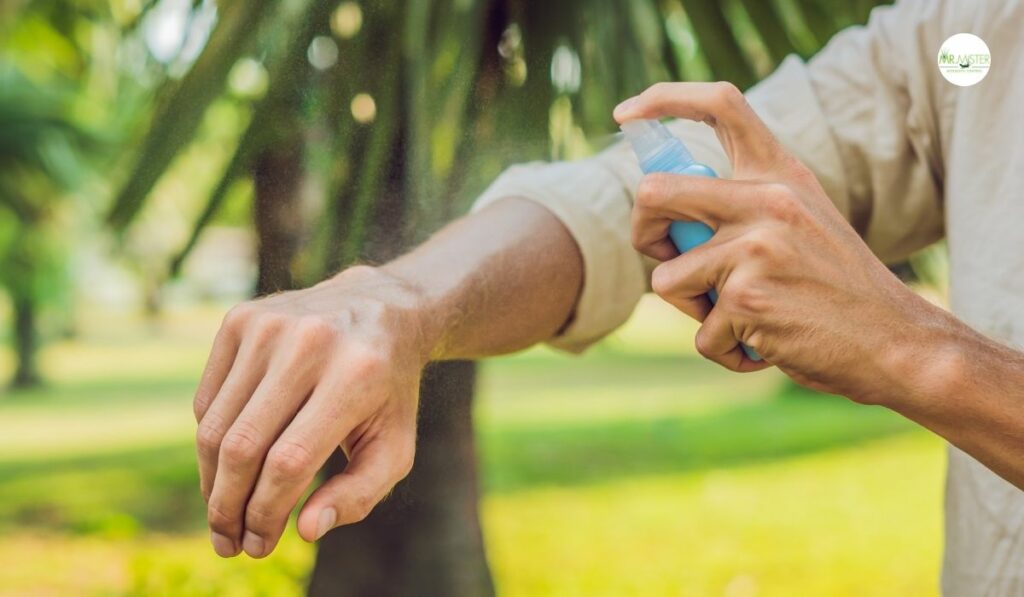Eco-Friendly Mosquito Control: Solutions for a Greener Approach
Mosquitoes are not only annoying pests but also carriers of deadly diseases such as malaria, dengue, Zika virus, and West Nile virus.
Traditional methods of mosquito control often involve the use of chemical pesticides, which can have harmful effects on the environment, non-target organisms, and human health.
In recent years, there has been a growing interest in eco-friendly mosquito control solutions that minimize environmental impact while effectively managing mosquito populations.
This article explores various eco-friendly approaches to mosquito control, highlighting their benefits and effectiveness.
Biological Control:
Biological control involves the use of natural predators, parasites, or pathogens to regulate mosquito populations.
One popular method is the use of predatory fish such as Gambusia affinis (mosquito fish) or specific species of copepods, which feed on mosquito larvae in water bodies.
Additionally, bacteria such as Bacillus thuringiensis israelensis (Bti) and Bacillus sphaericus (Bs) are commonly used as microbial larvicides that specifically target mosquito larvae while posing minimal risk to non-target organisms.
Habitat Modification:
Mosquitoes breed in stagnant water bodies such as ponds, ditches, and containers.
Eliminating or modifying these breeding sites can naturally reduce mosquito populations.
Simple measures such as removing standing water, maintaining clean gutters, and properly disposing of containers can significantly decrease mosquito breeding habitats.
Furthermore, the introduction of native aquatic plants and the creation of fish ponds can help establish balanced ecosystems that discourage mosquito breeding.
Mosquito Traps:
Mosquito traps are devices designed to attract and capture mosquitoes without the use of chemical pesticides.
These traps typically utilize attractants such as carbon dioxide, heat, and specific scents to lure mosquitoes into the trap, where they are either trapped or killed.
Some eco-friendly trap designs include the use of solar power for operation, making them energy-efficient and sustainable alternatives to traditional pesticide-based control methods.
Plant-Based Repellents:
Certain plants contain natural compounds that repel mosquitoes due to their strong scent or chemical properties.
Citronella, lemongrass, lavender, and peppermint are known for their mosquito-repelling qualities.
By incorporating these plants into outdoor landscapes or using their essential oils in candles, lotions, or sprays, it is possible to create practical barriers against mosquitoes without resorting to chemical repellents.
Integrated Pest Management (IPM):
Integrated Pest Management (IPM) is a comprehensive strategy that revolutionizes pest control, emphasizing a harmonious balance between efficacy and ecological responsibility.
This approach represents a departure from traditional chemical-heavy methods, instead integrating a diverse array of techniques to tackle pest issues sustainably.
In the context of mosquito management, IPM orchestrates a symphony of tactics, from deploying natural predators and altering breeding habitats to strategically placing traps and harnessing the power of botanical repellents.
By customizing interventions to suit specific environmental nuances and mosquito species, IPM not only curtails pest populations but also safeguards ecosystems.
This holistic methodology embodies a paradigm shift towards proactive, eco-friendly pest management practices, ensuring long-term efficacy without compromising environmental integrity.
Community Engagement and Education:
Community engagement and education serve as pillars in advocating for eco-conscious mosquito control approaches.
By fostering understanding regarding the significance of mosquito management and the hazards linked with chemical pesticides, communities empower individuals to address mosquito issues using environmentally sustainable methods proactively.
Educational initiatives can disseminate knowledge on eco-friendly mosquito control techniques like habitat adjustments and the introduction of natural predators, motivating residents to embrace these strategies within their households and localities.
Through collective action and informed decision-making, communities can effectively mitigate mosquito populations while safeguarding the environment for future generations.
Government Policies and Regulations:
Government policies and regulations wield considerable influence in advancing eco-friendly mosquito control endeavors.
By enacting limitations on the application of chemical pesticides in public areas and advocating for the adoption of integrated pest management (IPM) protocols, governments can stimulate the utilization of safer and more sustainable alternatives.
Furthermore, governmental bodies can offer financial backing and resources to facilitate research initiatives exploring eco-conscious mosquito control methodologies.
By fostering collaborations between researchers, communities, and industry players, governments catalyze innovation and drive progress in this critical domain, ultimately fostering healthier environments and communities.
Research and Innovation:
Sustained research and innovation are pivotal in advancing the frontier of eco-friendly mosquito control methodologies.
Scientists are delving into pioneering techniques such as genetically modified mosquitoes, the sterile insect technique, and gene editing technologies to curtail mosquito populations without compromising environmental integrity.
Through robust investment in research endeavors and the facilitation of collaboration among academia, industry, and government entities, we can expedite the evolution and implementation of eco-conscious mosquito control strategies that marry efficacy with sustainability.
This concerted effort promises not only effective pest management but also a greener and healthier future for our planet.
Global Collaboration:
Addressing the formidable health challenges posed by mosquito-borne diseases demands a united front on a global scale.
Esteemed international bodies like the World Health Organization (WHO) and the United Nations Environment Programme (UNEP) assume pivotal roles in orchestrating collaborative endeavors to combat these diseases and advocate for eco-friendly mosquito control practices worldwide.
Through the exchange of insights, allocation of resources, and dissemination of best practices, nations can forge alliances to pursue shared objectives and cultivate environments that are not only healthier but also more sustainable for generations to come.
This collective effort underscores the significance of global cooperation in safeguarding public health and preserving our planet’s ecological balance.
Conclusion:
In conclusion, the imperative to combat mosquito-borne diseases and promote eco-friendly mosquito control practices transcends borders, necessitating collaborative action on a global scale.
Organizations like the World Health Organization (WHO) and the United Nations Environment Programme (UNEP) are at the forefront of this endeavor, facilitating cooperation and knowledge exchange among nations.
Together, we can create a healthier and more sustainable future. For further information or to get involved, please visit MR. MISTER MOSQUITO CONTROL.
FAQs
What is eco-friendly mosquito control?
Eco-friendly mosquito control refers to the utilization of methods and techniques that minimize harm to the environment, non-target organisms, and human health while effectively managing mosquito populations.
Why is eco-friendly mosquito control important?
Eco-friendly mosquito control is essential because traditional methods often involve the use of chemical pesticides, which can have harmful effects on the environment and human health. By adopting eco-friendly approaches, we can mitigate these risks while effectively controlling mosquito populations.
What are some examples of eco-friendly mosquito control methods?
Examples include biological control using natural predators or pathogens, habitat modification to eliminate breeding sites, mosquito traps that do not use chemical pesticides, plant-based repellents, integrated pest management (IPM), community engagement and education, government policies and regulations, research and innovation, and global collaboration.
How does biological control work in mosquito control?
Biological control involves the use of natural predators, parasites, or pathogens to regulate mosquito populations. For example, predatory fish like Gambusia affinis feed on mosquito larvae, while bacteria such as Bacillus thuringiensis israelensis (Bti) target mosquito larvae specifically.
What is habitat modification in mosquito control?
Habitat modification entails altering or eliminating breeding sites for mosquitoes, such as stagnant water bodies. Simple measures like removing standing water and introducing native aquatic plants can reduce mosquito breeding habitats.
How do mosquito traps work in eco-friendly control?
Mosquito traps use attractants like carbon dioxide and heat to lure mosquitoes into the trap, where they are either trapped or killed without the use of chemical pesticides. Some designs even utilize solar power for sustainability.
What are plant-based repellents, and how effective are they?
Certain plants contain natural compounds that repel mosquitoes due to their strong scent or chemical properties. Citronella, lemongrass, lavender, and peppermint are known for their mosquito-repelling qualities when used in outdoor landscapes or as essential oils in candles, lotions, or sprays.
What is Integrated Pest Management (IPM) in mosquito control?
IPM is a comprehensive strategy that integrates various techniques, such as deploying natural predators, altering breeding habitats, and using traps and botanical repellents to tackle pest issues sustainably while minimizing environmental impact.
How can communities engage in eco-friendly mosquito control?
Communities can engage by educating residents about the importance of mosquito management and the hazards of chemical pesticides. They can also promote eco-friendly techniques like habitat adjustments and the introduction of natural predators.
What role do government policies play in eco-friendly mosquito control?
Government policies can influence eco-friendly mosquito control by limiting the use of chemical pesticides, advocating for IPM protocols, providing financial backing for research, and facilitating collaborations between stakeholders.
Why is research and innovation necessary in eco-friendly mosquito control?
Research and innovation drive the development of new, sustainable mosquito control methods. Technologies like genetically modified mosquitoes and gene editing offer promising avenues for controlling mosquito populations while minimizing environmental impact.
How does global collaboration contribute to eco-friendly mosquito control?
Global collaboration allows for the exchange of knowledge, resources, and best practices in mosquito control. International bodies like the WHO and UNEP play crucial roles in coordinating efforts to combat mosquito-borne diseases and promote eco-friendly practices worldwide.
* Schedule a Free Mosquito Control Consultation – 404-941-0720 *
* Guaranteed Results * 100% Biodegradable * Locally Owned







